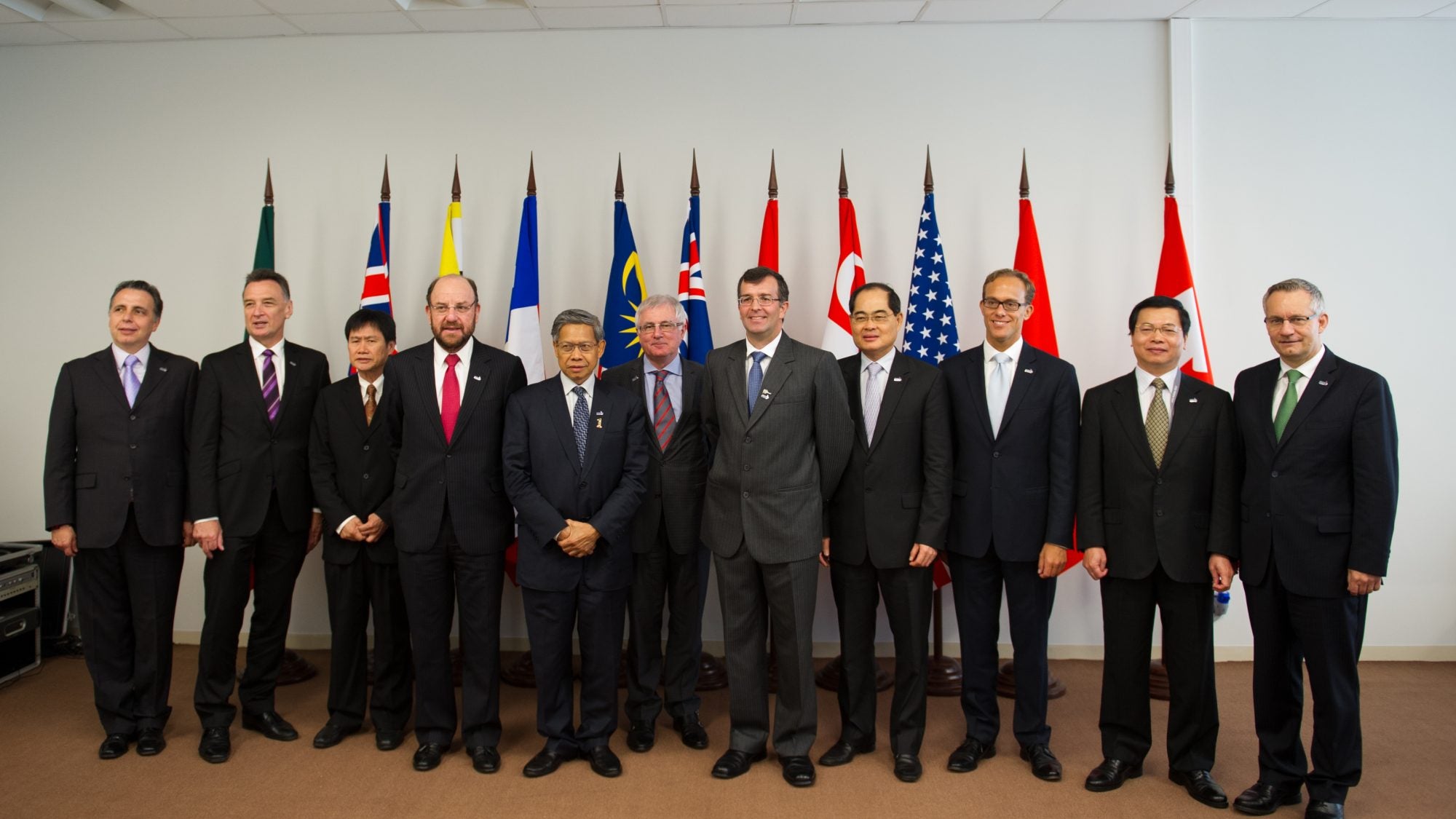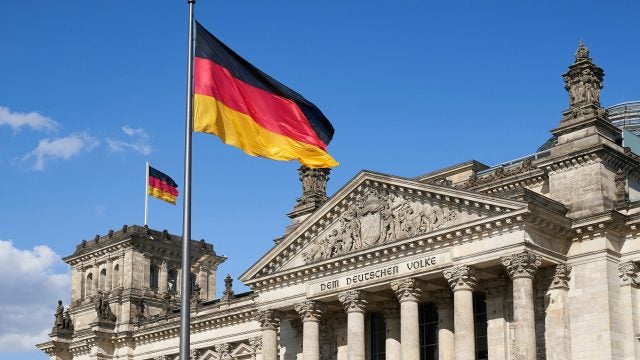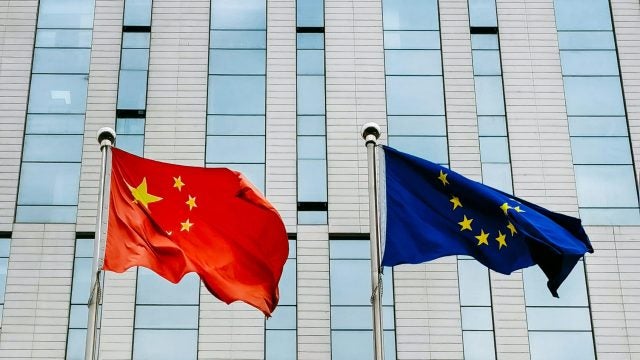
Title: The Trans-Pacific Partnership: More Questions than Answers for Chile?
On October 5, 2015, after nearly five years of negotiations, the twelve member countries of the Transpacific Partnership (TPP), a monumental free trade agreement between Pacific Rim countries, successfully completed talks and managed to seal the deal in Atlanta, Georgia. Together, representatives of foreign trade groups devised a contract, establishing a far-reaching process for economic integration in the Asia-Pacific region.
The TPP negotiations began in 2010 with twelve countries at the helm: the United States, Chile, Australia, Brunei Darussalam, Canada, Malaysia, Mexico, Japan, New Zealand, Peru, Singapore, and Vietnam. The contract has to be ratified by the parliaments of the participating nations, before it can be put into force. Whistleblower platform Wikileaks has repeatedly published secret text passages of the agreement, raising concerns about certain mechanisms of the TPP unknown to the public.
Despite government enthusiasm for the agreement, the news of its signing was met with mixed feelings from civil societies in smaller member countries of the new TPP trade zone, namely that of Chile. The negative reception in Latin America’s only OECD member nation came from NGOs, public institutions, private organizations, and, interestingly enough, from both the left and right of the country’s political spectrum.
One group in particular, Chile without TPP (Chile Mejor sin TPP), heavily criticized the agreement for both its precedent processes and its potential ramifications. The organization claimed it would do all that it could to prevent the Chilean parliament from ratifying the agreement, saying the agreement had been negotiated under absolute secrecy and without democratic participation. Chile without TPP released a statement on November 9th, attesting that “the late release of texts confirms fears that started after the Wikileaks revelations and which have consequently been raised by organizations around the world. This treaty is not good for the citizens, even less for smaller countries like Chile, and is an expression of what happens when governments negotiate without social or political participation.”
Dr. Thomas Lagomarsino, president of the Equity Chile Foundation in Santiago, showed further opposition to the deal, noting that “this treaty, if adopted, will further affect the right to public health of Chileans and entail high costs in the public health care sector, because the standard protection of biological drugs, one of the main objectives of the U.S. negotiating team on behalf of the interests of big transnational pharmaceutical corporations, extends the term of protection for these drugs to eight years and not five, as falsely announced by the government.”
Dr. Lagomarsino also denounced the TPP for establishing restrictive standards on internet use and intellectual property rights, arguing that the TPP “squanders the opportunity to have a deep discussion about the role of copyrights in the transnational digital environment, as well as the role of libraries, archives, and user rights.”
Independent expert Carlos Figueroa cites the over-protection of copyrights as a clear deficiency of the deal, underscoring that “half of the TPP countries in the coming 20 years will increase the monopolistic exploitation of intellectual work without any justification needed… the only beneficiaries [of which] are the biggest companies that own or buy the copyright.”
Another critic, leftist Senator Alejandro Navarro, said the TPP “tried to appear like a free trade agreement, but in fact is a way to make a series of changes that multinational companies have not been able to pass in the Chilean parliament, such as restrictions on privacy in the Internet, increased patent protection, and increased financial deregulation”. Senator Navarro continued, emphasizing that “this treaty will bring more costs than benefits for Chile by extending the exclusivity of biological drugs. The treaty also seeks to extend private property on clinical data used in the development of biological drugs, preventing our country from accessing the cheapest drugs. Therefore, this is a treaty of submission under the international pharmaceutical and corporate lobby”.
Navarro further stressed that “once this treaty is ratified, we will be condemned to dependence on and subordination to international pharmaceutical companies seeking to maintain their billions in profits at the expense of the health care needs in the world, preventing 792 million people (i.e. the combined population of the 12 TPP countries) from accessing generic drugs, which are substantially cheaper than those of the big brand names.”
The right-wing Senator Van Rysselberghe also criticized the government for “the lack of clarity and transparency that has been characterizing the TPP, as there are important areas of the economy which do not yet know if and how they will be affected by this treaty, because several core chapters that are still secret even after the signature of the treaty.” The lawmaker expressed a number of concerns about the TPP, arguing that “Chile has already had bilateral free trade agreements with 11 countries of the TPP before its signature, so it is necessary that the government clearly say what the country gains with this new agreement.” It should be noted that Chilean rightists, leftists, and NGOs are in particular agreement in their shared critique of this aspect of the TPP.
Senator Francisco Chahuán, a center-right politician, states that “it is important to urge the Government of leftist President Michelle Bachelet to eventually release the full version of all texts. We want to end the uncertainty about the scope and the effects the TPP can generate in our country. I am particularly concerned about three areas: 1. the law regarding plant breeders; 2. the protection of biological products; 3. the unclear destiny of software patents.”
In the same vein, the president of Chile’s Foreign Relations Committee, center-left senator Carolina Goic, assesses that “it is essential that the texts are released to know the details of the areas in which we will be affected because of this strategic decision.”
The chief of General Directorate of International Economic Relations, Andrés Rebolledo, highlights that one of the most controversial points of the agreement is the over-protection of the medical industry. Nevertheless, Rebolledo explains that the guilds of the Chilean pharmaceutical market expressed their agreement with the solution reached.
The Chilean parliament has been critical of the fact that it still does not have the full details of the agreement. Many parliamentarians confirmed their initial fears that the TPP may allow the issuance of patents for certain plants, food, medicines, and even surgical procedures. In accordance with Rebolledo’s concern, the Chilean parliament fears that over-protection in these industries could damage Chile’s economy and the economies of other, smaller member countries.
All in all, criticism of the TPP is widespread in Chile, representing a rare agreement between Chile’s political left and right, as well as between distinct economic and social interest groups.
Despite the TPP being signed into effect on October 5th, both the process of discussion and critique of the process of ratification and legitimation are far from over. Indeed, this may be just the beginning and the TPP could experience notable obstacles along the road to completion. There are in particular, four highly disputed aspects of the agreement:
- Chilean civil society still fails to see the TPP’s benefit to its smaller member countries, who, despite previous bilateral agreements already in place, have also signed on to the new free trade agreement.
- The five-year negotiation process, conducted from 2010 to 2015, was designed to feature low levels of participation from parliaments, social organizations, and citizens. Such a process nurtures noticeable public distrust. Chileans fear that they have lost control over the details of the agreement because of the secrecy in which they were fashioned.
- The asymmetry in bargaining power among TPP member states generates a feeling that the main beneficiaries of the TPP will be the biggest, most developed economies and their multinational corporations. The fact that the TPP was presented to the public only after the conclusion of the negotiation diminishes opportunities to protect the interests of national industries through specific adjustments in the terms of the treaty.
- There is consensus among NGOs and senators from all Chilean parties that the treaty poses significant risk to such highly sensitive areas as intellectual property, most notably to such fields as medicine, agriculture, internet, and software. The main perceived problem, once again, is that parliament cannot modify the terms of the agreement post factum; rather, they can choose to accept it or refuse it as-is.
Considering these concerns, heated debate is expected over the ratification process of the TPP in the coming months. The process could prove to be more difficult than governments and elites expect, because of resistence from civil society. Hopefully, the ongoing discussion will further elucidate the complex features and key public grievances associated with free trade agreements of this scale and scope, such as the Transatlantic Trade and Investment Partnership (TTIP) that is currently being negotiated between the United States and the European Union.
The TPP can and should serve as a model of how to avoid errors, such as a lack of transparency and the exclusion of NGO’s from the negotiation process, as well as how to improve democratic participation by better including civil society and democratic institutions into the fashioning of such agreements.
. . .
Image Credit: East Asia and Pacific Media Hub U.S. Department of State, Public domain, via Wikimedia Commons
Dr. Roland Benedikter is the Co-Head of the Center for Advanced Studies, UNESCO Chair in Interdisciplinary Anticipation and Global-Local Transformation, and Member of the Future Circle of the German government.
Miguel Zlosilo was the former Chief of Research of the Secretary of Communications in the Sebastián Piñera II Government (2018-21). He is the founder of Artool, a data communication company in Santiago de Chile, and the co-author of Chile in Transition: Prospects and Challenges of Latin America’s Forerunner of Development (Springer International, 2015).
Recommended Articles

This article contends that South Africa’s 2025 G20 presidency presents a critical opening to shape governance of critical mineral supply chains, essential for renewable energy, digital economies, and national…

Germany’s economy is being throttled by a more competitive China that has usurped its previous manufacturing dominance in many industries. In response, Germany has doubled down on the China bet…

In 2021, the European Union (EU) attempted to assert itself in the Indo-Pacific arena to increase its geopolitical relevance by releasing an ambitious and multifaceted Indo-Pacific Strategy. However, findings from…